Feb 03, 2025
Pneumatic stopper cylinders, often used in Maintenance, Repair, and Operations (MRO) settings, are specialized actuators designed to control, stop, or hold objects in motion, particularly on conveyor systems or assembly lines.
They are integral in manufacturing, logistics, and material handling processes.
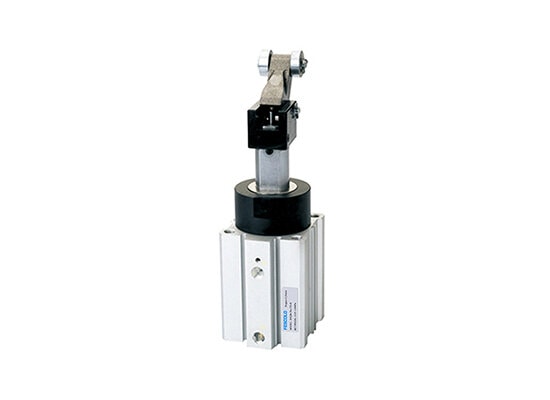
They provide high precision in stopping and positioning, making them ideal for handling various workpieces in automation systems.
Made with high-quality materials and surfac
e treatments, they ensure long-term stable operation, even under heavy loads and harsh environments.
With a small footprint, they are easy to integrate into limited spaces and offer various mounting options to suit different application needs.
Equipped with pneumatic or rubber cushioning to reduce impact forces, improving system stability and extending service life.
This is a popular choice for stopper applications due to its simplicity.
Initial State: The stopper (whether a roller or foot) is in the raised position, allowing the items on the conveyor to pass freely.
The piston rod is extended by an internal spring, and no air pressure is needed initially.
Stopping Action:
When an item, such as a box or pallet, needs to be stopped, compressed air is introduced into the cylinder.
The air pushes the piston, overcoming the spring, causing the piston rod to retract and lower the stopper to halt the item on the conveyor.
Resetting:
Once the item is stopped, the air supply is cut off.
The internal spring then pushes the piston back to its starting position, raising the stopper and allowing the items to continue moving.
Double-acting cylinders provide more precise control as they feature air ports for both extension and retraction of the piston rod.
There are two key configurations:
Double-Acting with Spring:
Like the single-acting version, this model uses a spring to return the piston to a default position. Air can be applied to either port:
Air entering the 'extend' port pushes the piston rod out, lifting the stopper.
Air entering the 'retract' port moves the piston in, overcoming the spring and lowering the stopper.
Double-Acting without Spring:
This version relies entirely on compressed air to control both the extension and retraction of the piston, with air directed to the respective port to move the piston and adjust the stopper.
In both single-acting and double-acting models with a spring, the spring holds the default position, and compressed air moves the piston against the spring force.
Once the air is shut off, the spring naturally returns the piston to its original position.
Stopper Cylinders are primarily used in production lines or conveyor systems to control the stopping and positioning of workpieces.
Based on various application requirements, stopper cylinders can be categorized as follows:
1. Fixed Installation Height Type
Suitable for scenarios requiring a fixed installation height.
2. Adjustable Installation Height Type
Allows height adjustments as needed, providing greater flexibility.
3. Precision Stopper Cylinders
Features built-in cushioning for gentle stopping, ideal for applications demanding higher precision.
4. Workpiece Separators
Designed to connect with conveyors, accurately separating workpieces.
5. Heavy-Duty Stopper Cylinders.
Designed for applications requiring high load capacity with a more robust construction.
6. Vertical and Horizontal Stopper Cylinders
Depending on installation orientation, these are available in vertical and horizontal types to accommodate different spatial layouts.
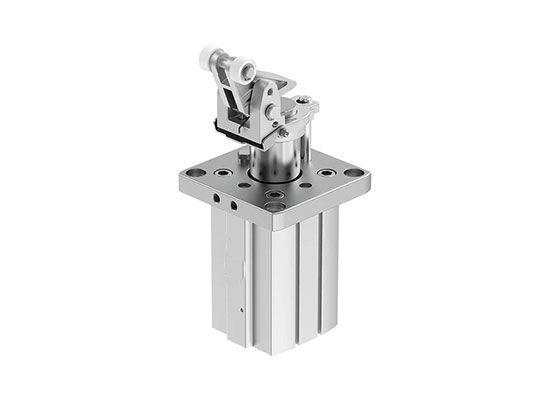
Features: Compact structure, ideal for stopping and positioning workpieces in various automation applications.
Design: Durable and robust, suitable for high-frequency operations.
Features: Equipped with a cushioning function to reduce impact and vibration when stopping workpieces.
Design: Designed for applications requiring higher stability and precision.
Both models can be customized to meet specific customer requirements. For detailed information or product customization, feel free to contact us!
Recommended Models: RSQ Series, RSG Series
Light-duty conveyor lines are used for the transport, sorting, and stopping of lightweight items. In this application, the stopper cylinder needs to have high operating frequency capabilities and compact design.
The RSQ series is ideal for applications where space is limited but frequent stops are required. The RSG series is suitable when adjustable installation height is necessary for greater flexibility in the conveyor system design.
Compact design, easy installation in limited space
High frequency operation, durable enough for continuous use
Adjustable height options for versatile setups
Recommended Models: Heavy-duty Stopper Cylinders
For heavy-duty applications, such as large machine parts, automotive components, or bulk material handling, the stopper cylinder must be designed to handle higher loads and withstand greater mechanical stress. Heavy-duty stopper cylinders are built with reinforced components and provide reliable stopping power for large, heavy workpieces.
High load capacity
Strong and durable construction
Suitable for demanding environments where standard cylinders may fail
Recommended Models: RSDQ Series, RSH Series
In applications that require precise stopping and positioning, such as assembly lines for electronics or delicate components, precision stopper cylinders with built-in cushioning functions are ideal.
The RSDQ series is designed to provide a soft stop, reducing impact and vibration to maintain the accuracy and integrity of the workpieces.
Similarly, the RSH series features precision control for accurate stopping and positioning with additional shock-absorbing capabilities.
High precision for critical applications
Built-in cushioning reduces impact and vibration
Ensures smooth and accurate stopping of sensitive components
Recommended Models: MIW/MIS Series (Workpiece Separators)
In production lines where workpieces need to be separated or precisely aligned, workpiece separators are essential. These cylinders connect to the conveyor system and allow for accurate sorting or separation of items based on size or type.
Models like the MIW/MIS series are designed to operate efficiently in high-speed systems.
Accurate separation of workpieces
Reliable performance in high-speed environments
Easy integration into conveyor systems
Recommended Models: Stainless Steel or Corrosion-Resistant Stopper Cylinders
In industries such as food processing, pharmaceuticals, or other cleanroom environments, stopper cylinders made from corrosion-resistant or stainless steel materials are crucial.
These materials prevent contamination and ensure that the cylinders can withstand harsh cleaning and sterilization processes.
Corrosion-resistant materials ensure hygiene and safety
Easy to clean and maintain
Reliable performance in sensitive environments
Recommended Models: Vertical and Horizontal Stopper Cylinders
In environments where space is limited, such as small workstations or tight production lines, choosing between vertical or horizontal stopper cylinders can make a significant difference. Vertical models are suitable when there’s less horizontal space, while horizontal models can be used when vertical space is limited.
Flexible installation options for tight spaces
Compact design without compromising performance
Easily adaptable to various layouts and systems
Recommended Models: Heat-Resistant Stopper Cylinders
For applications in environments with high temperatures (such as steel mills, plastic molding, or furnace operations), heat-resistant stopper cylinders are necessary.
These cylinders are built with special seals and materials to withstand extreme temperatures and ensure reliable operation without failure.
High heat tolerance for extreme environments
Durable seals to maintain performance at elevated temperatures
Reliable in high-temperature applications
Stopper cylinders stop and hold workpieces, while feed separators guide and separate them based on specific criteria. They serve different roles in automated systems.
Stopper Cylinders: Used to stop and position workpieces at specific points in a production line.
Feed Separators: Used to separate, align, or direct workpieces into specific paths or bins.
Stopper Cylinders: They stop or hold items in place temporarily for further processing or inspection.
Feed Separators: They guide or separate items based on characteristics like size or type before the next process.
Stopper Cylinders: They apply force to stop moving workpieces and may include cushioning for smooth stops.
Feed Separators: They use mechanical or pneumatic systems to push or guide items in the desired direction.
Stopper Cylinders: Focus on stopping or holding workpieces.
Feed Separators: Focus on sorting, directing, or aligning workpieces.
Fescolo is a professional manufacturer of pneumatic equipment, offering a variety of cylinder products. Contact us directly or browse our website.
You May Interest In
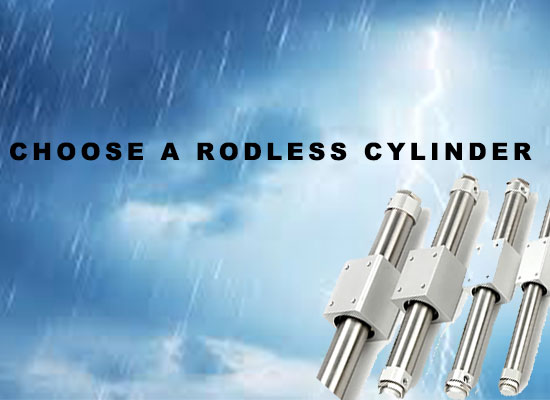
Jan 13, 2025 Blog
Choosing a Rodless Cylinder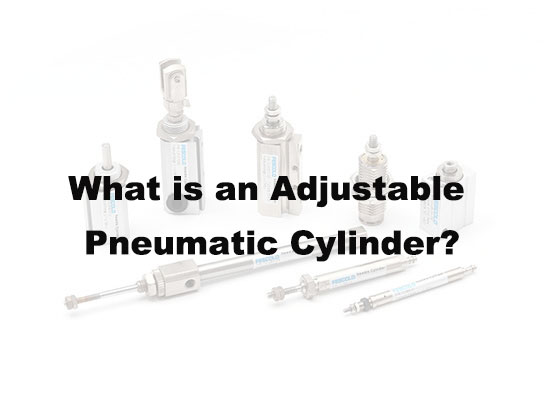
Dec 31, 2024 Blog
What is an Adjustable Pneumatic Cylinder?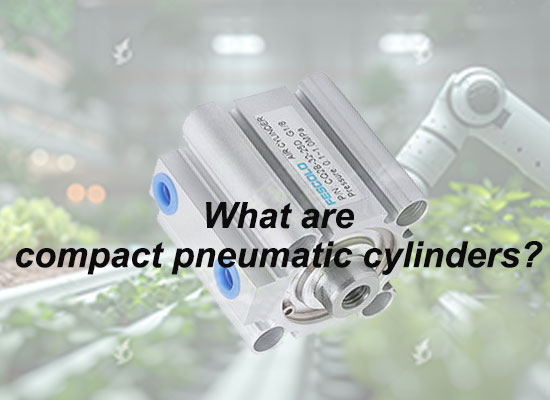
Dec 18, 2024 Blog
What is compact pneumatic cylinder?FOKCA ©1998-2025 Fescolo Pneumatic All Rights Reserved Sitemap